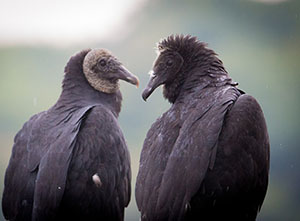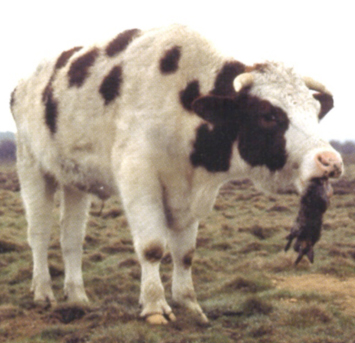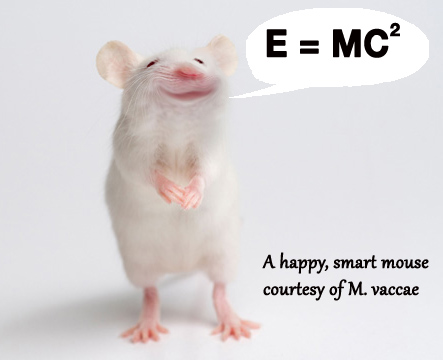

Black Vulture populations are increasing and, with warmer winters, their range is expanding too. Once only found in the southeast United States, the birds are now being seen as far north as Indiana. The problem is, unlike their cousin the Turkey Vulture, which only feeds on carrion, black vultures are aggressive enough to take live animals. According to Bryan Kluever, USDA Wildlife Services, there are documented cases of black vultures killing and eating newborn calves, lambs, piglets and other domestic animals. They can also go after weak adults that are on the ground.
Rollin Bach, an eastern Indiana farmer, has firsthand experience with the damage that black vultures can do. He had a cow that was partially paralyzed following birth complications. The veterinarian who came to check her said she would recover and could be left in the pasture. But because she couldn’t stand up, she couldn’t escape the Black Vultures that then attacked and killed her.
This is a problem that southern graziers have dealt with for some time. As Black Vulture numbers have multiplied, so has the damage they do. The Kentucky Farm Bureau estimates that farmers in that state lose $300,000 to $500,000 worth of livestock each year to the birds.
The birds are also quite intelligent. Derek Lawson, the head herdsman for Foxhollow Farm near Oldham, Kentucky described how they attack calves to an AP reporter in 2019:
They like to play with the newborns, he said. They’ll hop around and get the calf comfortable with them before they peck out their eyes.
“Then they can’t see,” he said, “so they can take them over.”
The whole process, from the playful taunt to the complete skinning, doesn’t take long at all, he added. Depending on the size, it may only take minutes. “They’re very efficient at what they do.”
Vultures have sharp beaks that Lawson says is like coming at someone with a skinning knife. “It’s all clean cuts. Usually the hide’s completely cut off, whereas with a coyote or doges, it’ll be torn and jagged.”

Black Vultures are causing other kinds of problems as well. They like to peck on rubber, so windshield wiper blades and the gaskets on windshields can be targets. At Everglades National Park, at certain times of the year, Visitor Center staff hands out tarps so visitors can cover their vehicles to protect them from the vultures. Wildlife Services staff have also used bird bangers, fire crackers and effigies and handheld lasers. But in cities, where vultures perch on flat roofs and peck away the rubber membranes, researchers are looking at another option: those wavy, air dancer men commonly seen at car dealerships. They’re modifying them to run off of solar power so they can function more effectively on roof tops.

No, We Can’t Kill Them on Sight

Black Vultures are covered by the Migratory Bird Treaty Act of 1918, which combines four international conservation treaties the U.S. entered into with Canada, Mexico, Japan and Russia. Listed birds, their nests and their eggs can not be harmed without federal permission.
Federal permits to shoot the birds are available for $100 and must be renewed annually. Harming birds without a permit can result in a $15,000 fine and six months in jail. To help farmers in their area, the Kentucky Farm Bureau began buying permits through a partnership with the U.S. Fish and Wildlife Service and offering sub-permits for free to eligible applicants. This could be a useful example for other regions confronting Black Vulture problems.
Effigies to Scare Off Vultures
Dummy dead birds hanging from trees seem to be another way to scare the vultures off, at least temporarily. The dead birds themselves can also be used this way. Derek Lawson, says that he usually has to kill a few in the beginning of calving season. He hangs them upside down from tree limbs and then for a few months the birds are wary and stay further away. He says noise doesn’t seem to bother them much and that the effigies are the most effective for him.
Protecting Your Livestock
As with any predator, it’s important to remove and dispose of carcasses or other things that could attract the birds. If you compost on site, be aware the black vultures will dig through compost piles looking for something to eat. Properly burying carcasses can deter this.
If you have other information or suggestions, do share them in the comments below!




I have not had experience with vultures because we are further north. However, golden eagles were a problem one spring by killing calves. At that time the sheep were lambing separately from the cow herd. Once I figured out what was going on, I moved the flock to the cows hoping the guardian dogs would solve the problem. The dogs certainly did take care of the problem! Two mornings after moving the sheep, I saw the dogs chasing a golden eagle across the pasture just after daybreak and we never lost another calve or lamb to another predator. In my experience with guardian dogs, a good dog protects from both air & ground attacks; no excuses, period!
Side note: bald eagles travel with golden eagles. The goldens kill and eat the eyes & tongue, the balds scavenge.
Timing of this article coincides with an observation yesterday. The chickens ran for the coop, and a second few seconds later a large black vulture did a low flyover about 15’ over the run. I yelled at it and it went away. Pretty sure it wasn’t a turkey vulture, I saw no red head. It glided without a flap or a sound. Even the hawks don’t come in that low. I had put up fishing line over the top of the run to discourage predatory birds from attacking. It seems to be working. They don’t want to risk entanglement.
One of our readers, Mike, reminded me to point out that the Black Vulture is different than the Turkey Vulture. Turkey Vultures are the ones with red heads. They are not aggressive and do not cause these problems. He says that in his area of Texas Black Vultures seem to be replacing Turkey Vultures thanks to their aggressive and competitive nature.
Thanks Kathy for this heads up; please see questions below. Black vultures have slowly moved into our SW VA mountain area over the last 8 years, my farm the last 3. My Great Pyrenees nor my mother cows have fear of them. Farmers to our south warned us to be vigilant, so thankfully we’ve not lost calves yet. It’s alarming when my cow in labor has an audience of black vultures, one atop each fence post. Last year we happened on a group of 25 black vultures on our pasture. Checking out a group of 8 young calves napping on the other side of the wire from their mothers. By the time I got there, most calves had moved to their mothers’ calls and we didn’t lose any. The vultures took their time hopping away, then circling over me as they left. They now know I carry a shotgun.
Our strategies:
—Promptly clean up any dead animal or parts which attract vultures. This includes calves, placentas, varmints we or our dog kill such as racoons, possums, skunks at our henhouse, deer remains from hunting, groundhogs, roadkill, etc.
—Ask friends and family to call me whenever a black vulture seen perching or on the ground at our farm. We live and calve here but cannot see certain fields from the house as well as our neighbors. (A few farmers in our area are using drones to monitor cows in labor and fields out of line of sight. Our topography is ‘ridge and valley’.)
—Placentas bring vultures in and can keep them around for the next calf. Know where each and every placenta ends up: back in the mother, in my Great Pyrenees, or buried in the ground.
—As possible, move cows with birth imminent close to the house, to check often. (Again, drones have a place here.)
—Time the daily move of wire for more grass. To influence when imminent births occur. Kathy, could you please help me find the On Pasture article on timing births by timing daily feed introduction?
—Teach the black vultures they’re not welcome to perch at our farm. Thankfully ammo for our Remington 870 readily available, so they fly when they see me coming.
Questions for all, help welcome:
My cattle (Red Devons) and my Great Pyrenees have little to no fear of these new vultures flying over, perching nearby, or on the ground in their pasture, near their calves. By instinct, our newborn calves hide in the tallest grass, across the wire where my cattle will graze next. This hides them well from walking predators, me and their mothers. But to new, flying predators these ‘hidden’ calves are in plain sight. So this instinct does not protect them. The black vultures swoop in and feed quietly, unlike raucous ravens or crows.
1) How to teach my cows awareness and protection of their calves from a new vulture so similar to the harmless, turkey vultures they’re used to?
2) My dog picks up on what alarms me moreso than the cows. If only my dog treated black vultures the same as coyotes calling nearby. How could I teach my dog these vultures are a threat I want to know of, that the herd needs protection from? We’re ably protected from any and all UPS drivers!
Thanks for all the great information, Richard!
Here are two articles on timing births:
Make Lambing Kidding and Calving Happen During Daylight Hours
Goat Kidding Tips and an Idea for Timing Births No Matter What You Raise
Comments are closed.